
If researchers discovered a member of your family has a gene that increases risk of some types of cancer, would you want to know? If you learned you have such a gene, would you want it revealed to your relatives? These real-world dilemmas pit personal privacy against the health concerns of family members. And the explosion of research on genomics – sometimes looking at a research participant’s entire genome and identifying many gene variants of concern – makes this a pressing problem.
There is little guidance right now for researchers on how to balance an individual’s privacy with family health concerns. And in many studies, especially on cancer genomics, the research participant may die, leaving researchers with no idea whether they can reach out to offer family members the deceased individual’s results. These policy gaps can leave siblings, children, and other relatives without crucial information about their own potential health conditions.
This conference grew out of the first NIH-funded project dedicated to this emerging area of bioethics. Experts grappled with whether researchers should share results of genomic sequencing with family members and, if so, how best to do it. Policy recommendations from this conference could ultimately be applied across the nation, having a major impact on the future of genomics in U.S. health care. What’s at stake is how we as a society balance individual privacy against family access in the new era of genomic sequencing.

Agenda and Videos
Should We Offer Genomic Results to a Research Participant’s Family, Including After Death?
Cowles Auditorium, Hubert H. Humphrey Center, University of Minnesota
Thursday, November 6, 2014
8:30am
Welcome and introductions View video Duration: 14 min
Moderator: Susan M. Wolf, JD (Co-PI), McKnight Presidential Professor of Law, Medicine & Public Policy; Faegre Baker Daniels Professor of Law; Professor of Medicine; Chair, Consortium on Law and Values in Health, Environment & the Life Sciences, University of Minnesota
- Brian Herman, PhD, Vice President for Research, University of Minnesota
8:45am
Keynote: Where do we stand on return of results & incidental findings in research & clinical care? Where does return to family fit in the puzzle? View video Duration: 39 min
Moderator: Susan M. Wolf, JD
- Wylie Burke, MD, PhD, Professor, Dept. of Bioethics & Humanities, University of Washington School of Medicine
9:15am
Offering results & incidental findings to family in genomic research: Project analysis & recommendations*
Moderator: Susan M. Wolf, JD
- Barbara Koenig, PhD, Professor, Dept. of Social & Behavioral Sciences, Institute for Health and Aging, University of California, San Francisco
- Gloria Petersen, PhD, Professor, Dept. of Epidemiology, Mayo Clinic College of Medicine; Associate Director for Population Sciences, Mayo Clinic Cancer Center; Associate Dean for Research Informatics, Mayo Clinic (Co-PI)
*Video not available for this presentation. Recommendations can be found in the Fall, 2015 issue of the Journal of Law, Medicine & Ethics.
10:00am
Do families desire unexpected genomic research results? A national survey of participants in a cancer biobank, their blood relatives, partners, and matched controls View video Duration: 30 min
• Barbara Koenig, PhD (Co-PI), Professor, Dept. of Social & Behavioral Sciences, Institute for Health and Aging, University of California, San Francisco (Co-PI)
• Carmen Radecki Breitkopf, PhD (Co-PI), Associate Professor, Health Services Research, Mayo Clinic
10:30am
Break
10:45am
Panel: Reactions to recommendations View video Duration: 1 hr, 26 min
Moderator: Susan M. Wolf, JD
Panelists:
- Jean McEwen, JD, PhD, Program Director, Ethical, Legal, and Social Implications Program, National Human Genome Research Institute, National Institutes of Health
- Scott Nelson, Patient Advocate
- Jerry Menikoff, MD, JD, Director, Office for Human Research Protections (OHRP)
- Ellen Wright Clayton, MD, JD, Craig-Weaver Professor of Pediatrics; Professor of Law; Founding Director, Center for Biomedical Ethics & Society, Vanderbilt University
- Mark E. Robson, MD, Clinic Director and Associate Attending Physician, Clinical Genetics and Breast Cancer Medicine Services, Department of Medicine, Memorial Sloan Kettering Cancer Center; Chair-elect, Ethics Committee, American Society of Clinical Oncology
12:15pm
Networking Lunch
1:00pm
Concurrent Session #1: How should researchers, IRBs, and biobanks approach return of results & incidental findings to family, including after the participant’s death? What policies are appropriate? View video Duration: 52 min
Moderator: Jean McEwen, JD, PhD, Program Director, Ethical, Legal, and Social Implications Program, National Human Genome Research Institute, National Institutes of Health
- Implications of penetrance differences in subpopulations — Prof. Robert C. Green, MD, MPH, Dept. of Genetics, Brigham and Women’s Hospital; Associate Director for Research, Partners Center for Personalized Genetic Medicine, Harvard Medical School
- What are the implications of a family-centered approach to cancer genetics for return of research results to kin? — Prof. Mary Daly, MD, PhD, Chair, Dept. of Clinical Genetics, Fox Chase Cancer Center
- What is the IRB’s role in the return of results? — Prof. P. Pearl O’Rourke, MD, Director, Human Research Affairs, Partners HealthCare; Prof. Laura Beskow, MPH, PhD, Institute for Genome Sciences & Policy, Duke University; Prof. Susan Berry, MD, Professor of Pediatrics & Genetics, University of Minnesota; Prof. Conrad Fernandez, MD, Dept. of Bioethics, Dalhousie University; Dept. Pediatric Hematology/Oncology, IWK Health Centre
- How should biobanks & registries approach this? — Prof. Gloria Petersen, PhD; Prof. Brian Van Ness, PhD, Dept. of Genetics, Cell Biology & Development, University of Minnesota
- What do the HIPAA Privacy Rule, state laws, and professional codes of ethics tell us about return of results to family, including after the participant's death? — Prof. Mark A. Rothstein, JD, Herbert F. Boehl Chair of Law & Medicine; Director, Institute for Bioethics, Health Policy & Law, University of Louisville School of Medicine
Concurrent Session #2: How and when should return of results and incidental findings occur in research involving children and adolescents? What does that suggest more broadly for return to family outside of the pediatric context? View video Duration: 1 hour, 18 min
Moderator: Prof. Sharon Plon, MD, PhD, Professor of Molecular and Human Genetics; Professor of Pediatrics, Baylor College of Medicine; Director, Cancer Genetics Clinical Program and Cancer Genetics Research Program, Texas Children’s Hospital
- Returning secondary findings from pediatric sequencing to families — Prof. Ben Wilfond, MD, Director, Treuman Katz Center for Pediatric Bioethics, Seattle Children’s Hospital; Chief, Division of Bioethics, University of Washington; Prof. Conrad Fernandez, MD, Dept. of Bioethics, Dalhousie University; Dept. Pediatric Hematology/Oncology, IWK Health Centre; Prof. Robert C. Green, MD, MPH, Dept. of Genetics, Brigham and Women’s Hospital; Associate Director for Research, Partners Center for Personalized Genetic Medicine, Harvard Medical School
- Return of results and incidental findings in research involving adolescents — Ellen Wright Clayton, JD, MD, Craig-Weaver Professor of Pediatrics; Professor Law; Director, Center for Biomedical Ethics & Society, Vanderbilt University
- Return of results and incidental findings in research on dried blood spots from newborn screening — Michelle Huckaby Lewis, MD, JD, Research Scholar, Berman Institute of Bioethics, Johns Hopkins
2:30pm
Break
2:45pm
Concurrent Session #3: Progressing to consideration of populations and specific subpopulations in the return of results debate View video Duration: 1 hour, 20 min
Moderator: E. Charlisse F. Caga-anan, JD, MA, Program Director, Health Sciences Specialist, Division of Cancer Control and Population Sciences, National Cancer Institute, NIH
- How should policy on return to family address diversity among families? — Prof. Carmen Radecki Breitkopf, PhD, Health Services Research, Mayo Clinic
- Engaging diverse communities on return of results: What about return to family? — Nanibaa’ A. Garrison, PhD, Assistant Professor of Pediatrics, Vanderbilt University Medical Center
- Return of results in families with rare and ultra-rare variants — Prof. Sharon Plon, MD, PhD, Professor of Molecular and Human Genetics; Professor of Pediatrics, Baylor College of Medicine; Director, Cancer Genetics Clinical Program and Cancer Genetics Research Program, Texas Children’s Hospital
- GENE-SCREEN: Decisions about return of results & incidental findings in the context of public health genomics — Prof. Gail Henderson, PhD, Professor & Chair, Dept. of Social Medicine, University of North Carolina at Chapel Hill
Concurrent Session # 4: The relationship of research to clinical care in return of results and incidental findings to family View video Duration: 1 hr, 20 min
Moderator: Jerry Menikoff, MD, JD, Director, Office for Human Research Protections (OHRP)
- What should the relationship be between return to family in clinical genetics and return of research results? — Prof. Barbara Koenig, PhD; Prof. Susan M. Wolf, JD; Prof. Wylie Burke, MD, PhD, Professor, Dept. of Bioethics & Humanities, University of Washington School of Medicine
- What can return to family in the context of research learn from return in the context of clinical care? — Prof. Bonnie LeRoy, MS, Dept. of Genetics, Cell Biology & Development, University of Minnesota
- Genomic sequencing for tumor profiling: From cancer research to cancer care — Mark E. Robson, MD, Clinic Director and Associate Attending Physician, Clinical Genetics and Breast Cancer Medicine Services, Department of Medicine, Memorial Sloan Kettering Cancer Center; Chair-elect, Ethics Committee, American Society of Clinical Oncology
- Should return to family hinge on clinical actionability? How should that be specified — actionability in the care of family members themselves? What does “actionability” mean in this context? — Noralane (Laney) Lindor, MD, Dept. of Medical Genetics, Mayo Clinic Arizona
- Returning results relating to reproductive health: Implications for women — Research Associate Rebecca Branum, JD, Consortium on Law and Values in Health, Environment & the Life Sciences, University of Minnesota; Prof. Susan M. Wolf, JD
4:30pm
Reports from Concurrent Sessions and Next Steps View video Duration: 41 min
5:00pm
Adjourn
Speaker Biographies

Susan A. Berry, MD, is Professor of Pediatrics & Genetics and Division Director for Genetics and Metabolism in the Department of Pediatrics, University of Minnesota. She is a member of the Minnesota Department of Health Newborn Screening Advisory Committee, the Society for Inherited Metabolic Disease, and the American Society of Human Genetics, and is a Fellow of the American Academy of Pediatrics and the American College of Medical Genetics. She is chair of the University of Minnesota Institutional Review Board (IRB) Executive Panel. Dr. Berry is a nationally recognized geneticist and expert in inborn errors of metabolism. Her research focuses on defining the molecular actions of growth hormone.

Laura M. Beskow, MPH, PhD, is Associate Professor at Duke University, where her work focuses on ethics and policy issues in biomedical research—particularly human subjects issues in large-scale genomic and translational research. She has been a Principal Investigator on empirical studies of research recruitment, informed consent, confidentiality protections, and return of research results to participants and families. She served on the Subpart A Subcommittee of the Secretary's Advisory Committee for Human Research Protections, and is now a member of the Federal Advisory Committee for the National Children’s Study.
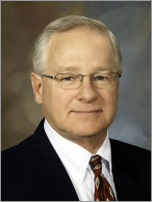
Jeffrey R. Botkin, MD, MPH, is Professor of Pediatrics at the University of Utah and Adjunct Professor of Human Genetics. He is also Chief of the Division of Medical Ethics and Humanities and serves as the Associate Vice President for Research Integrity. His research focuses on the ethical, legal, and social implications of genetic technology, with a particular emphasis on research ethics, genetic testing for cancer susceptibility, biobanking, newborn screening, and prenatal diagnosis. Dr. Botkin is currently Chair of the DHHS Secretary’s Advisory Committee on Human Research Protections. He also is a member of the Secretary’s Advisory Committee on Heritable Diseases in Newborns and Children and former-Chair of the Committee on Bioethics for the American Academy of Pediatrics. He chairs the NIH Embryonic Stem Cell Working Group and is an elected Fellow of The Hastings Center.
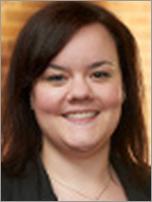
Rebecca M. Branum, JD, is Research Associate at the Consortium on Law and Values in Health, Environment & the Life Sciences, University of Minnesota. Ms. Branum has conducted legal research as part of the current NIH/NHGRI/NCI grant on “Disclosing Genomic Incidental Findings in a Cancer Biobank: An ELSI Experiment” (award 1-R01-CA154517).

Wiley Burke, MD, PhD, is Professor and former-Chair of the Department of Bioethics and Humanities at the University of Washington. Dr. Burke is an elected member of the Institute of Medicine (IOM), past-President of the American Society of Human Genetics, and former-Chair of the IOM Roundtable on the Translation of Genome-based Research for Health. She is also the Founding Director of the University of Washington's Center for Genomics and Healthcare Equality, which is funded by the National Human Genome Research Institute. Her research grapples with the ethical and policy implications of genomics in medicine and public health, including the translation of novel genomic technologies from bench to clinic.

E. Charlisse F. Caga-anan, JD, MA, is a Program Director in the Epidemiology and Genomics Research Program's (EGRP) Host Susceptibility Factors Branch (HSFB) at the National Cancer Institute at NIH. In this capacity, she works to implement the NIH GWAS Data Sharing Policy and grow NCI's portfolio of bioethics research grants. Ms. Caga-anan was a Postdoctoral Scholar at the Center for Genetic Research Ethics and Law at Case Western Reserve University, an NIH-funded Center for Excellence in Ethical, Legal, and Social Implications (ELSI) Research. In this capacity, she conducted research pertaining to ELSI issues in genetic and genomic research.

Ellen Wright Clayton, MD, JD, is Craig-Weaver Professor of Pediatrics, Professor of Law, and Director of the Center for Biomedical Ethics and Society, Vanderbilt University. She is the 2010 recipient of the William G. Bartholeme Award for Ethical Excellence from the American Academy of Pediatrics’ Section on Bioethics,. Prof. Clayton is an elected member of the Institute of Medicine (IOM), where she serves on the National Advisory Council, and a Fellow of the American Association for the Advancement of Science (AAAS). She has advised the National Institutes of Health and other federal and international bodies on topics ranging from children's and women's health to the ethical conduct of human subject research.
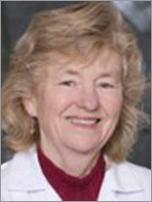
Mary B. Daly, MD, PhD, is Professor and Chair of the Department of Clinical Genetics and Timothy R. Talbot Jr. Chair for Cancer Research at Fox Chase Cancer Center. Prof. Daly oversees programs in behavioral research, human genetics, epidemiologic research, and cancer prevention research. An epidemiologist and board-certified medical oncologist specializing in breast and ovarian cancers, Prof. Daly is renowned for her work in developing evidence-based interventions for cancer-risk education, risk counseling, risk communication, and behavior modification. She has served on national and international scientific committees, including the Board of Scientific Advisors to the National Cancer Institute, the Human Genome Cancer Studies Consortium, and the Observational Study Monitoring Board for the Women’s Health Initiative.
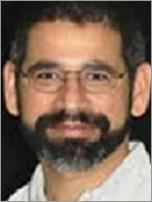
Conrad V. Fernandez, MD, is Professor and Head of the Division of Pediatric Hematology/Oncology, Department of Pediatrics, IWK Health Centre, Dalhousie University, Halifax, NS, Canada. He is cross-appointed in the Departments of Bioethics, Medicine, and Postgraduate studies. Prof. Fernandez is a Senior Scientist at the Beatrice Hunter Cancer Research Institute. He is Vice-Chair of the Children’s Oncology Group (COG) Bioethics Committee, and Co-Chair of the newly established COG Return of Research Results Committee.
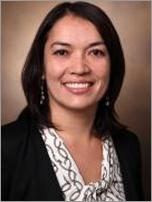
Nanibaa’ A. Garrison, PhD, is Assistant Professor of Pediatrics and a faculty member in the Center for Biomedical Ethics and Society, Vanderbilt University Medical Center. Her research interests include genetic research on Native American communities, informed consent, and issues involving privacy and confidentiality. Prior to joining the Vanderbilt faculty in 2013, Dr. Garrison was a post doctoral fellow at the Stanford Center for Biomedical Ethics and the Center for Integration of Research on Genetics and Ethics at Stanford University.

Robert C. Green, MD, MPH, is a medical geneticist and physician-scientist who directs the G2P Research Program in translational genomics and health outcomes in the Division of Genetics, Brigham and Women’s Hospital and Harvard Medical School. He is also Associate Director for Research at the Partners Center for Personalized Genetic Medicine. Dr. Green is Principal Investigator of the NIH-funded REVEAL Study, conducting multi-center randomized clinical trials since 2000 to explore emerging themes in translational genomics. Dr. Green also co-directs the NIH-funded PGen Study, one of the first prospective studies of direct-to-consumer genetic testing services. He is PI of the MedSeq Project, the first NIH-funded randomized trial to explore the use of whole genome sequencing in the clinical practice of medicine and co-directs the BabySeq Project, the first NIH-funded trial of sequencing in newborns.

Gail E. Henderson, PhD, is Professor and Chair of the Department of Social Medicine and Adjunct Professor of Sociology, University of North Carolina at Chapel Hill. Her teaching and research interests include global health inequality and research ethics. Prof. Henderson is a medical sociologist with training in public health and has extensive experience in interdisciplinary research and analysis. Since 1999, her research on bioethics has been funded by the National Human Genome Research Institute’s Program on Ethical, Legal and Social Implications. In 2007, she became PI of a 5-year NIH/NHGRI grant funding the Center for Genomics and Society at UNC. Its mission is research and training on the ethical, legal, and social implications of large-scale genomic studies. Since 2009, she has been the ELSI Editor of the journal, Genetics in Medicine. Most recently, she has conducted NHGRI-supported case study and survey research on ethical issues associated with the use of biospecimens and other data collected, stored, and managed by biobanks.

Brian Herman, PhD, is Vice President for Research at the University of Minnesota, responsible for the oversight and administration of externally funded research on the five campuses of the U of M system. The Office of the Vice President for Research provides guidance and support to individual researchers and manages the university’s research enterprise. Before coming to the University of Minnesota, Dr. Herman was Professor and Chair of the Department of Cellular and Structural Biology, and then Vice President for Research at the University of Texas Health Science Center at San Antonio. He is a past recipient of an American Cancer Society Faculty Research Award (1991-1995) and two NIH National Institute on Aging “Method to Extend Research in Time” (MERIT) Awards (1994-2004, 2005-2015).
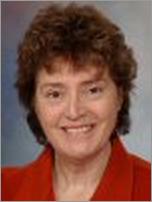
Barbara A. Koenig, PhD, is Professor of Medical Anthropology and Bioethics, Department of Social and Behavioral Sciences, Institute for Health and Aging, University of California, San Francisco. Prof. Koenig has pioneered the use of empirical social science methods in the study of ethical questions in science, medicine, and health. Her research addresses new biomedical technologies, particularly those within the genomic sciences, and care near the end of life. She integrates the study of everyday practice—such as informed consent procedures and classification systems in genetic research—with normative analysis. Prof. Koenig is Co-PI on the current NIH/NHGRI/NCI grant on “Disclosing Genomic Incidental Findings in a Cancer Biobank: An ELSI Experiment” (award 1-R01-CA154517).
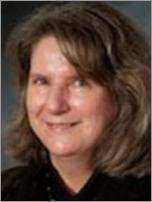
Bonnie S. LeRoy, MS, CGC, is Associate Professor and Director of the Graduate Program in Genetic Counseling, University of Minnesota. The primary focus of her work is on preparing graduate students to enter the profession of genetic counseling. Her research examines the ethical and social challenges associated with the genetic counseling profession. Prof. LeRoy served as the President of the American Board of Genetic Counseling from 2001-03.

Michelle Huckaby Lewis, MD, JD, is a Research Scholar at the Berman Institute of Bioethics and the Genetics and Public Policy Center at Johns Hopkins University. She is a pediatrician and an attorney with training in bioethics and health services research. Her current research focuses primarily on the retention and use of residual newborn screening blood samples. In addition, she is involved in the development of a publicly available website to provide clinical information about specific cystic fibrosis mutations.

Noralane M. Lindor, MD, is Professor in the Department of Medical Genetics, Mayo Clinic Arizona. She is a medical geneticist with nearly 20 years of experience in all aspects of clinical genetics. Dr. Lindor's research has focused on understanding risks and risk management for those with hereditary or familial cancer predisposition. Her particular expertise involves colorectal cancers and breast cancers. For 15 years, Dr. Lindor has been Principal Investigator for the NIH-funded multinational consortium now known as the Colon Cancer Family Registry.
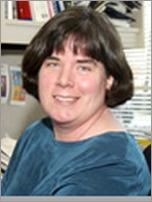
Jean E. McEwen, JD, PhD, is Program Director of the Ethical, Legal, and Social Implications Program, National Human Genome Research Institute, National Institutes of Health. She currently manages a portfolio of research grants focused on the ethical, legal, and social implications (ELSI) of genomics research and related policy issues. She also manages a cooperative agreement for the conduct of a large consultation study to obtain public input to inform the design of a possible large longitudinal cohort study of the role of genes and environment in health and disease. Previously, she managed grants on the ELSI of genetic variation in complex traits and behavioral genetics, especially as such issues relate to law and social policy. Dr. McEwen also currently manages a consortium of investigators conducting research on normative, legal, and psychosocial issues surrounding the return of genomic research results. Previously, she managed a consortium on the societal implications of genetic variation research.
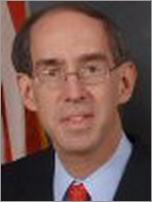
Jerry Menikoff, MD, JD, MPP, is Director, Office for Human Research Protections (OHRP), U.S. Department of Health & Human Services. Prior to his current role, he was in charge of the human subjects protections program at the National Institutes of Health (NIH). Dr. Menikoff was also Associate Professor of Law, Ethics & Medicine at the University of Kansas School of Medicine. He has been a Faculty Fellow at the MacLean Center for Clinical Medical Ethics at the University of Chicago, and at the Center for Ethics and the Professions at Harvard University. He also has been on the faculty of the University of Chicago School of Law and other law schools.

Scott Nelson is a ten-year survivor of pancreatic cancer. He volunteers his time with the Pancreatic Cancer Action network as a Patient Advocate to “give back” to the people who helped him during his diagnosis and treatment. He is also a member of the Mayo Clinic NCI-funded SPORE (specialized program of research excellence) Advocate Committee, RAPPORT.
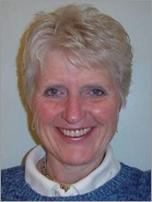
P. Pearl O’Rourke, MD, is Director of Human Research Affairs, Partners HealthCare, and Associate Professor of Pediatrics, Harvard Medical School. She is also a board member of Public Responsibility in Medicine and Research (PRIM&R). Dr. O’Rourke has been involved in international medical care, serving in China and Indonesia with Project HOPE. In 1995-96 she completed a Robert Wood Johnson Health Policy fellowship and worked for Senator Edward Kennedy as a member of the Labor Committee Staff. She has also served as Deputy Director of the Office of Science Policy in the Office of the Director at NIH, where she worked on issues including privacy, gene therapy (transfer), embryonic stem cells, and genetic discrimination.
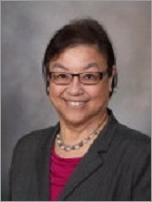
Gloria M. Petersen, PhD, is Professor of Epidemiology and Purvis and Roberta Tabor Professor, College of Medicine, Mayo Clinic. She also holds appointments in the departments of Health Sciences Research, Gastroenterology, and Medical Genetics. She is certified by the American Board of Medical Genetics as a PhD Medical Geneticist and is a founding member of the American College of Medical Genetics and Genomics (ACMG). She directs the Mayo Clinic Specialized Program of Research Excellence (SPORE) in Pancreatic Cancer, as well as one of the largest and most comprehensive patient registry and biobank resources for the study of pancreatic cancer. Dr. Petersen is Co-PI on the current NIH/NHGRI/NCI grant on “Disclosing Genomic Incidental Findings in a Cancer Biobank: An ELSI Experiment” (award 1-R01-CA154517).
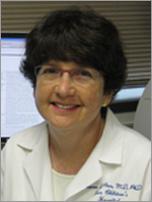
Sharon Plon, MD, PhD, FACMG, is Professor in the Departments of Pediatrics and Molecular and Human Genetics, and Director of the Cancer Genetics Clinical Program and Cancer Genetics Research Program, Texas Children’s Hospital. Her research encompasses both translational and clinical topics. She has studied physician interpretation of genetic test results as well as laboratory research on the identification of novel childhood cancer susceptibility genes. Dr. Plon has served on the steering committee of the BRCA1/2 mutation database and the international committee that made recommendations for clinical reporting of cancer susceptibility mutations. Most recently, Drs. Plon and Donald Will Parsons have been funded by the National Human Genome Research Institute to study how the incorporation of genome sequencing will impact the clinical care of newly diagnosed childhood cancer patients.
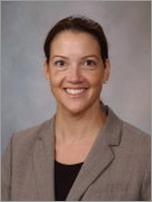
Carmen Radecki Breitkopf, PhD, is Associate Professor of Health Sciences Research, Mayo Clinic. Her research focuses on understanding and reducing disparities in health that may result from factors such as sociodemographics, English-language proficiency, and cultural beliefs about health and disease, with a particular focus on psychological and behavioral aspects of cancer prevention among minority and vulnerable populations. Dr. Radecki Breitkopf is involved in the empirical components of the NIH/NHGRI/NCI grant on “Disclosing Genomic Incidental Findings in a Cancer Biobank: An ELSI Experiment” (award 1-R01-CA154517).
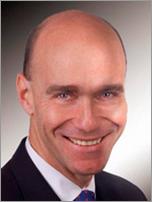
Mark E. Robson, MD, is Clinic Director and Associate Attending Physician, Clinical Genetics and Breast Cancer Medicine Services, Department of Medicine, Memorial Sloan Kettering Cancer Center, and Chair-elect of the Ethics Committee of the American Society of Clinical Oncology (ASCO). Dr. Robson's research is directed toward improving the integration of genetic information into the clinical management of women with breast cancer. He and his colleagues have conducted a number of studies examining outcomes in women with hereditary breast cancer to better define the risks and benefits of treatments such as breast-conserving therapy and adjuvant chemotherapy. He and his collaborators have also conducted studies examining the effectiveness of screening interventions such as breast MRI or ovarian cancer screening in women at hereditary risk. He is currently conducting studies to evaluate the impact of intensive screening or surgical prevention upon women's quality of life, and to develop new screening tools, such as serum peptide profiling.
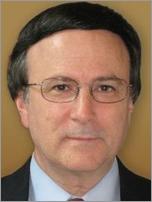
Mark A. Rothstein, JD, is Herbert F. Boehl Chair of Law & Medicine and Director of the Institute for Bioethics, Health Policy & Law, University of Louisville School of Medicine. He has concentrated his research on bioethics, genetics, health privacy, public health law, and employment law. From 1999-2008, he served as Chair of the Subcommittee on Privacy and Confidentiality of the National Committee on Vital and Health Statistics, the statutory advisory committee to the Secretary of Health and Human Services on health information policy. He is past-President of the American Society of Law, Medicine & Ethics (ASLME). He serves as Public Health Ethics editor for the American Journal of Public Health, and writes a regular column on bioethics for the Journal of Law, Medicine & Ethics.
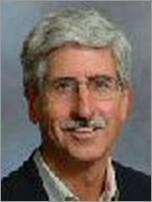
Brian Van Ness, PhD, is Professor, Department of Genetics, Cell Biology & Development, University of Minnesota. His lab focuses on defining genetic deregulation that contributes to lymphoid malignancies, particularly multiple myeloma, as well as working with both national and international clinical groups to correlate genetic defects with disease outcome and response to different therapies.
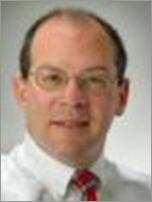
Benjamin S. Wilfond, MD, is Director of the Treuman Katz Center for Pediatric Bioethics, Seattle Children’s Hospital; Professor and Chief of the Division of Bioethics; Professor, Pulmonary and Sleep Medicine, Department of Pediatrics; and Adjunct Professor, Department of Bioethics and Humanities, University of Washington School of Medicine. Prof. Wilfond conducts research on ethical and policy issues related to genetic testing, genetic research, and pediatrics research. He is the President of the Association of Bioethics Program Directors, the Chair for the Clinical Research Ethics Consultation Working Group for the Clinical and Translational Science Awards program, and a member of the Bioethics and Legal Working Group of the Newborn Screening Translational Research Network.
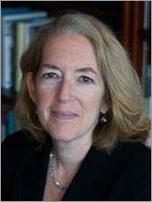
Susan M. Wolf, JD, is McKnight Presidential Professor of Law, Medicine & Public Policy; Faegre Baker Daniels Professor of Law; Professor of Medicine; and a faculty member in the Center for Bioethics at the University of Minnesota. Prof. Wolf is Chair of the Consortium on Law and Values in Health, Environment & the Life Sciences. She is an elected member of the National Academy of Medicine (NAM) and a Fellow of the American Association for the Advancement of Science. Prof. Wolf's research has been supported by the National Institutes of Health (NIH) and National Science Foundation (NSF) as well as private foundations including the Robert Wood Johnson Foundation and The Greenwall Foundation. Prof. Wolf is Co-PI on the current NIH/NHGRI/NCI grant on “Disclosing Genomic Incidental Findings in a Cancer Biobank: An ELSI Experiment” (award 1-R01-CA154517).
Check out news coverage for this conference:
- "Does Your Genome Belong to Your Family?" Science Friday, National Public Radio
- "Genetic privacy: Who should know what your tests reveal?" Minnesota Public Radio News
- "Genomic research stirs privacy debate," Minneapolis Star Tribune
- "Health, privacy: A tricky balance," Minnesota Daily
Supported by the National Institutes of Health (National Cancer Institute and National Human Genome Research Institute) grant #R01-CA154517
Continuing Legal Education (CLE)
A request for Continuing Legal Education (CLE) credits was filed.
Office of Continuing Professional Development
The University of Minnesota is accredited by the Accreditation Council for Continuing Medical Education (ACCME) to provide continuing medical education for physicians.
The University of Minnesota designates this live activity for a maximum of 7.0 AMA PRA Category 1 Credits™. Physicians should claim only the credit commensurate with the extent of their participation in the activity.
Other Healthcare Professionals Statement
Other Healthcare Professionals who participate in this CME activity may submit their Statements of Participation to their appropriate accrediting organizations or state boards for consideration of credit. The participant is responsible for determining whether this activity meets the requirements for acceptable continuing education.
Sponsored by:
- University of Minnesota’s Consortium on Law and Values in Health, Environment & the Life Sciences
- Mayo Clinic
- Center for Transdisciplinary ELSI Research in Translational Genomics at the University of California, San Francisco.
